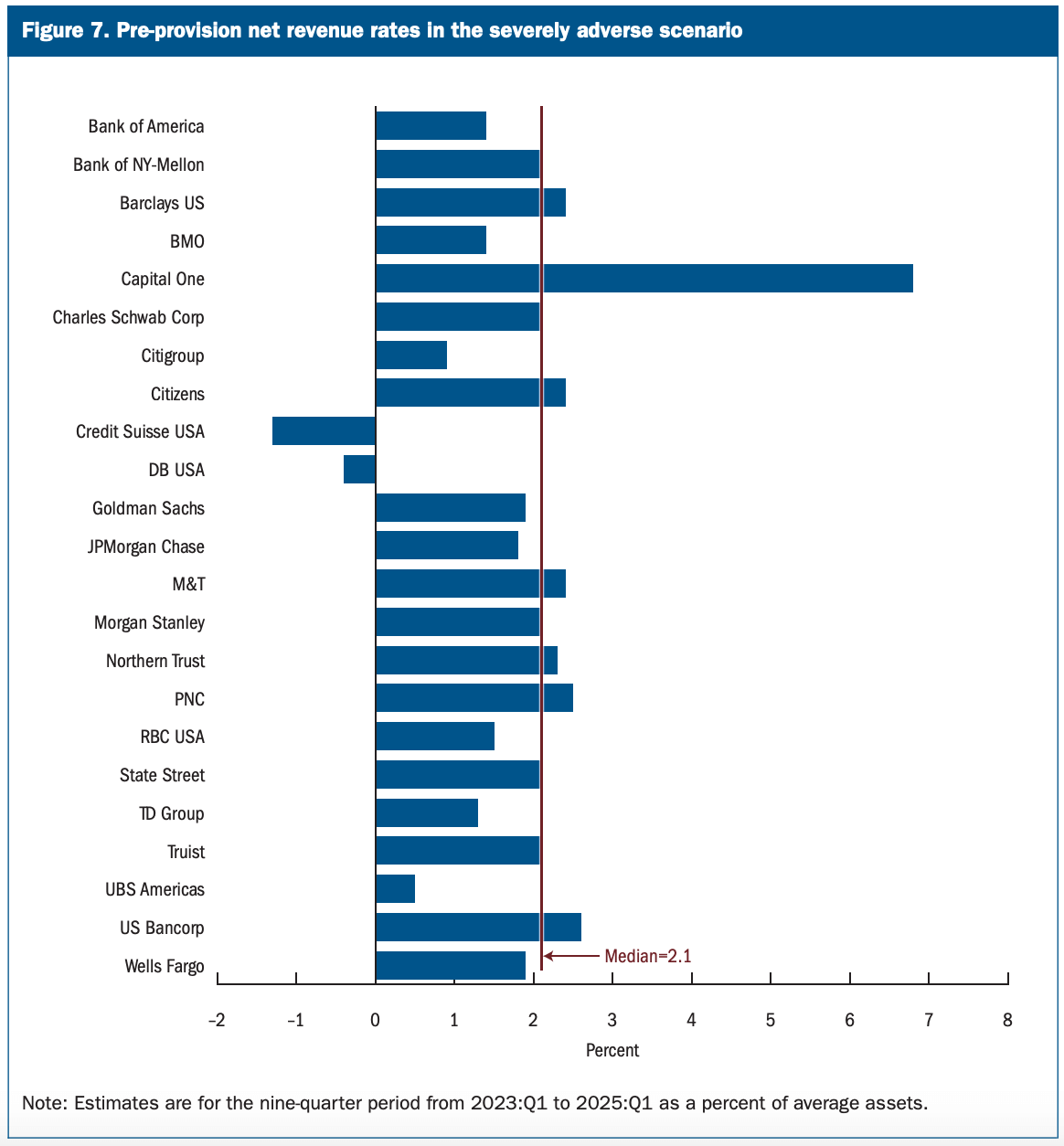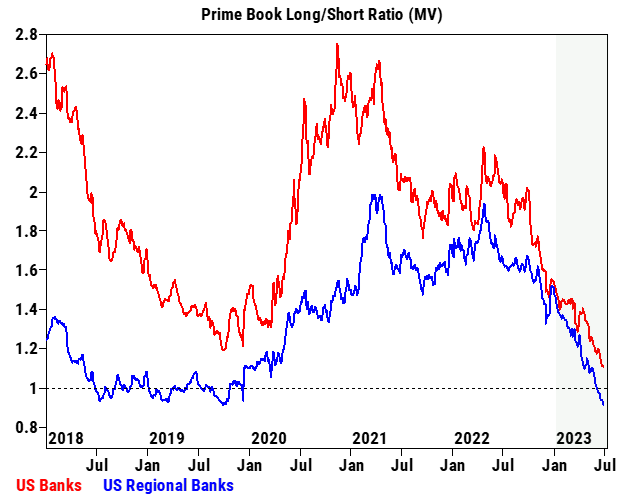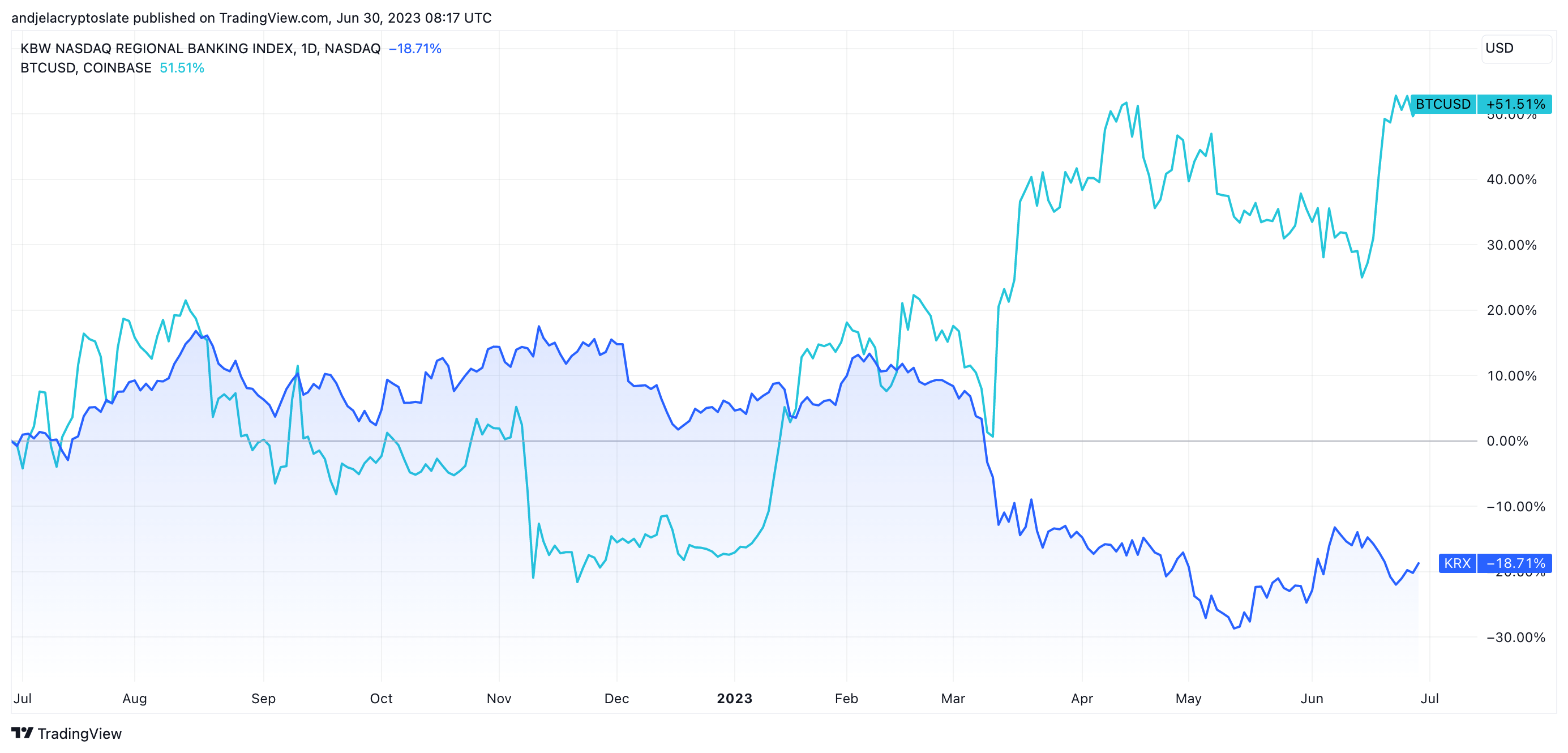The U.S. banking market recently underwent its annual stress test conducted by the Federal Reserve. This exercise, designed to evaluate the resilience of banks in the face of economic downturns, revealed a mixed bag of results that could have far-reaching implications for the cryptocurrency market, particularly Bitcoin.
A stress test is a simulation used to assess how banks would fare during a financial crisis. The recent test showed that banks, on average, experienced a maximum drawdown on stressed capital of 2.3%. The 2.3% figure is the lowest seen in several years, indicating that banks are more resilient to financial stress now than they have been in the past.
Some banks, notably Capital One Financial and U.S. Bancorp, saw a larger drawdown. This means they could face a higher Stress Capital Buffer (SCB), assuming dividends remain unchanged. The SCB is an additional amount of capital that a bank must hold to absorb losses and continue operations during financial stress.

The mixed results from the stress test haven’t deterred hedge funds from actively shoring U.S. banks, especially regional banks. According to data from Goldman Sachs Prime Brokerage, regional banks are the most exposed to commercial real estate, a sector that has experienced high volatility since the COVID-19 pandemic.

The banking industry’s health is crucial to Bitcoin and the broader cryptocurrency market.
Banks provide the infrastructure for fiat-to-crypto transactions, and their stability or instability can influence investor sentiment toward cryptocurrencies. Increased shorting of banks, if it leads to a downturn in the banking sector, could potentially drive investors towards Bitcoin as a safe haven asset.
If these shorts lead to significant market turbulence, it could create a risk-off environment that negatively impacts Bitcoin.
However, the crypto market has often thrived amidst traditional market instability. Bitcoin, in particular, has historically provided a hedge against traditional market fluctuations. Therefore, increased shorting of banks could potentially boost Bitcoin’s appeal as an alternative investment.

On the flip side, a destabilized banking sector could lead to tighter regulatory scrutiny and potential liquidity issues for cryptocurrencies. Banks facing significant stress may pull back on providing services to crypto businesses, affecting the ease of fiat-to-crypto transactions.
This could negatively impact Bitcoin in the short term, as the market could see weeks of low liquidity and increased selling pressure.
The post Why some hedge funds are shorting U.S. banks appeared first on CryptoSlate.
Credit: Source link






















 Bitcoin
Bitcoin  Ethereum
Ethereum  Tether
Tether  Solana
Solana  USDC
USDC  XRP
XRP  Lido Staked Ether
Lido Staked Ether  Dogecoin
Dogecoin  Toncoin
Toncoin  Cardano
Cardano  Shiba Inu
Shiba Inu  Avalanche
Avalanche  TRON
TRON  Wrapped Bitcoin
Wrapped Bitcoin  Polkadot
Polkadot  Bitcoin Cash
Bitcoin Cash  Chainlink
Chainlink  NEAR Protocol
NEAR Protocol  Polygon
Polygon  Litecoin
Litecoin  Fetch.ai
Fetch.ai  Internet Computer
Internet Computer  LEO Token
LEO Token  Uniswap
Uniswap  Dai
Dai  Ethereum Classic
Ethereum Classic  Render
Render  First Digital USD
First Digital USD  Hedera
Hedera  Aptos
Aptos  Cosmos Hub
Cosmos Hub  Cronos
Cronos  Mantle
Mantle  Pepe
Pepe  Wrapped eETH
Wrapped eETH  Filecoin
Filecoin  Stellar
Stellar  Stacks
Stacks  Immutable
Immutable  OKB
OKB  Renzo Restaked ETH
Renzo Restaked ETH  dogwifhat
dogwifhat  Bittensor
Bittensor  Optimism
Optimism  Arbitrum
Arbitrum  The Graph
The Graph  Maker
Maker 
